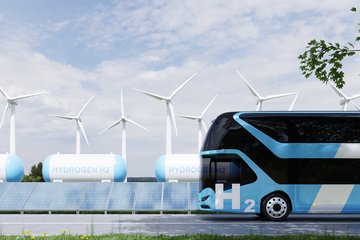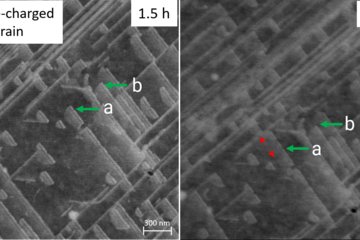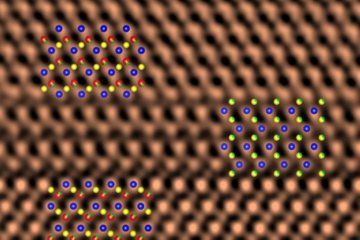All genres
141.
Talk
Corrosion protection and electronic conductivity: Spinel forming stainless steels as CCC for MCFC. Gordon Research Conference on High Temperature Corrosion, New London, NH, USA (2003)
142.
Talk
Korrosion in Müllverbrennungsanlagen. DGM-Fortbildungsseminar‚ Hochtemperaturkorrosion, Jülich, Germany (2003)
143.
Talk
Korrosion durch Chlor und Chloride. DGM-Fortbildungsseminar, Hochtemperaturkorrosion, Jülich, Germany (2003)
144.
Talk
Surface modification of different Fe–Si and Fe–Mn alloys by oxidation/reduction treatments. Eurocorr 2003, Budapest, Hungary (2003)
145.
Talk
Kinetic investigations on molten salt induced corrosion of pure iron. Eurocorr 2003, Budapest, Hungary (2003)
146.
Talk
Degradation performance of Al-containing alloys and intermetallics by molten ZnCl2/KCl. Corrosion Science in the 21th Century, UMIST Manchester, UK (2003)
147.
Talk
Factors affecting the high temperature corrosion resistance of coatings in waste fired plant. Corrosion Science in the 21th Century, UMIST Manchester, UK (2003)
148.
Talk
Salzschmelzeninduzierte Hochtemperaturkorrosion. VDI Wissensforum, Göttingen, Germany (2003)
149.
Talk
Korrosion in Müllverbrennungsanlagen. DGM-Fortbildungsseminar‚ Hochtemperaturkorrosion, Jülich, Germany (2002)
150.
Talk
Korrosion durch Chlor und Chloride. DGM-Fortbildungsseminar, Hochtemperaturkorrosion, Jülich, Germany (2002)
151.
Talk
Korrosion durch geschmolzene Karbonate. DGM-Fortbildungsseminar‚ Hochtemperaturkorrosion, Jülich, Germany (2002)
152.
Talk
Spinel forming stainless steels as possible current collector materials for molten carbon ate fuel cells. Fuel Cells Science and Technology, Amsterdam, The Netherlands (2002)
153.
Talk
Korrosion hochlegierter Stähle und nichtmetallischer Werkstoffe unter Müll verbrennungsbedingungen. VDI Fachtagung: ‚Korrosion in energieerzeugenden Anlagen’, Würzburg (2002)
154.
Talk
Fundamental aspects of chlorine induced corrosion in power plants. Invited lecture on the Workshop: ‘Life cycle issues in advanced energy systems’, Woburn, UK (2002)
155.
Talk
Influence of HCl, SO2 and deposits on the corrosion of boiler steels. Meeting, Chalmers University, Göteborg, Sweden (2002)
156.
Talk
Korrosion durch Beläge und Salzschmelzen. VGB Fachtagung: Thermische Abfallverwertung, Nürnberg, Germany (2002)
157.
Talk
Salzschmelzeninduzierte Hochtemperaturkorrosion.
158.
Talk
Korrosion durch Chlor und Chloride.
159.
Talk
Korrosion durch Chlor und Chloride.
160.
Poster
Sour corrosion – Investigation of anodic iron sulfide layer growth in saturated H2S saline solutions. Gordon Research Conference-Aqueous Corrosion, New London, NH, USA (2014)











